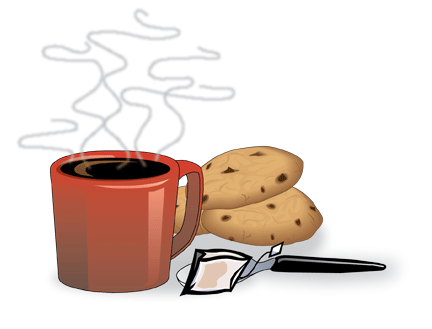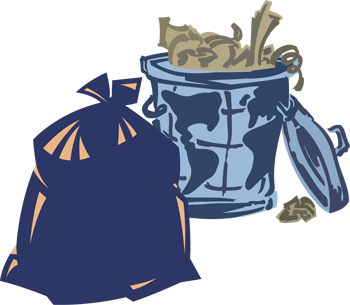 |
|
|
|
Sharing Still stepping The energy in the room was electrifying. The countdown was at fifteen years, and my anticipation started to build. The secretary called out “sixteen years” and my heart was pounding; “seventeen years,” my palms were moist; “eighteen years,” my stomach had butterflies; “nineteen years,” and I could barely contain myself. Finally, with the words, “twenty years,” I leaped out of my seat with unbridled excitement. I had really made it! In my mind, I shouted, “Thank you, God!” I laughed with joy, thanked Narcotics Anonymous, and humbly accepted my twenty-year chip. When I returned to my seat, I allowed my mind to travel back to a night twenty years before. That night, the room was vibrating with excitement and recovery was in the air. Everything inside of me trembled as my mind waged war against itself. I was terrified by my own thoughts. I told myself, “Don’t do it; it will hurt. They will laugh at you, and the embarrassment will cripple you for life.” My hand shot up without my consent. The leader called on me. I stood up and took one step. My mind shouted, “Run! Run!” I took a second step and my feet felt as heavy as lead. Step three, then step four—I stumbled and thought, “Just tell them a lie; they won’t know.” With my fifth step, I had arrived, and I braced myself on the podium. Ignoring my thoughts and my body, I spoke my truth: “My name is Brenda and I am an addict, and I relapsed three days ago. I tried to do it my way, but now I’m back to do it the NA way. I am going to go where I have never gone before, and that is inside me.” Instantly, my mind became quiet, my body calmed down, and I was embraced by a peace I had never known before. My physical steps transformed into spiritual steps, and I walked into my brand-new life of recovery. In my new life, my way was no longer clouded and misdirected. I had lights to guide me. Each of the twelve steps illuminated a portion of the path for me. When my sister died, they showed me how to resolve my guilt and grief. When I had major surgery, the steps helped me take medication as directed. When I felt lonely and depressed, they helped me replace these feelings with love and laughter. When my heart was broken, the steps showed me how to forgive. For twenty years I’ve used the steps of Narcotics Anonymous to walk the path of recovery. Today, I can truly say I love the life I live, and I live the life I love.
How long can you tread water? This fellow where I work had a using problem. I tried to talk to him, since everyone on the crew (including him) knew that I am in recovery. He assured me, however, that I need not have bothered; all he needed was a little willpower. After several warnings from the foreman about coming to work late, and in poor condition, he was finally suspended for several days. When he returned from suspension, he managed to get to work on time for just over two weeks. Toward the end of that period, he was sort of stumbling in with only a minute or two to spare. Finally, he showed up over two hours late and spent his coffee and lunch breaks isolating in the basement. I tried some friendly “hellos,” but he shut me out. Someone on the crew commented that he’d had such a good start at reforming his ways, and wondered how he could have lost it. Suddenly, seemingly out of nowhere, I commented that it wasn’t really a good start, but more like treading water. I then compared willpower to treading water, which is only good for a short duration until all of the swimmer’s energy is used up. I compared a recovery program to drownproofing, which is a relaxed survival method of staying afloat face down, popping up every five to ten seconds for air, and then returning to the relaxed, face-down position. There’s even a drownproofing travel stroke where one takes a stroke and glides—face down — after each breath, which allows the swimmer to move along at a slow, measured pace. Some learn this technique readily, while others (such as me) only learn it after a long struggle. For those who have never experienced and don’t understand active addiction, it may be difficult to understand this comparison, but I have found through help from other NA members that I can achieve this kind of measured progress in my own recovery program. This is a way to explain why willpower so often fails and why, as addicts, we must find a new way to live. While this comparison is imperfect, it often helps the nonaddict understand recovery. Since the foreman had watched me grow over the last few years from the street person they’d cautiously hired into a valued employee, he gave it some serious thought and resolved to encourage this fellow to seek help. Helping hands I have been a member of NA for sixteen years. I enjoy the diversity and abundance of meetings in the city where I live. One meeting I attend has a lot of newcomers and just a few oldtimers. One particular day, I witnessed a miracle in progress at this meeting. I noticed one member wanted to share really badly. He almost fell off his chair raising his hand to share. When the chairperson called on him, I realized the member couldn’t speak, but the addict sitting next to him knew sign language, so he gave him a voice. The member shared that he had fifty-eight days clean, and he was thinking about giving up on NA because he understood all that we were sharing, but no one understood him, and he really wanted to share sometimes. He said he would continue to show up. His sharing brought tears to my eyes, but the best of the miracle was yet to come. After the meeting, I talked to the addict who did the sign language. I asked him how long the two of them had been attending meetings together and told him it was a great thing to see. He said he noticed the sounds the other member was making and figured out that he had no voice, so he indicated through sign language that he understood and would help. “But, I’ve never seen that guy before in my life,” the addict-interpreter said. “I’m just coming back from a relapse, and the seat next to him was the only empty chair in the room.” Taking insanity out with the trash After five months “in the rooms” (and relapse after relapse), that last week in September found me ready to give up. My cravings and obsession to use never ceased. As our literature puts it, “Self-pity is one of the most destructive of defects; it will drain us of all positive energy.” (Basic Text, “Recovery and Relapse” chapter) Tearful and angry, I wondered why I hadn’t gotten “a break.” Outside, a rainy deluge battered our New York streets. In my dark crack-den of an apartment, I prayed for dead friends to intercede with God on my behalf. Spiritually, I was one sick puppy, craving drugs and obsessing about drug-fueled sex. On the positive side, I was planning to attend a 6:00 pm meeting that evening. I searched for an appropriate poetry book to get me through the next few hours. Instead, I played a favorite CD and desperately prayed for the singer to guide me or to intercede with our Higher Power. There is no way to really explain what followed, other than to say that hearing the music awakened in me “the necessity for vigorous personal action” (Basic Text, “Recovery and Relapse”) and the application of spiritual principles in my life.
In the days that followed, I felt enormous freedom. It was as if those totems had obstructed positive spiritual growth and healing. More than a year and a half later, I see that afternoon as a beginning in my spiritual awakening. It marked my first period free of obsessions and cravings, something I hadn’t ever thought possible. I finished working my first formal Fourth Step with my sponsor. Gratefully, I remembered that dark September afternoon, with its healing music by a beloved composer/performer that opened a door for my Higher Power. It was a milestone for my cleantime and sanity. Jon N, New York, USA
|
| Contact NA World Services |
|
Return to Home Page |

